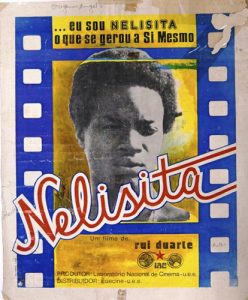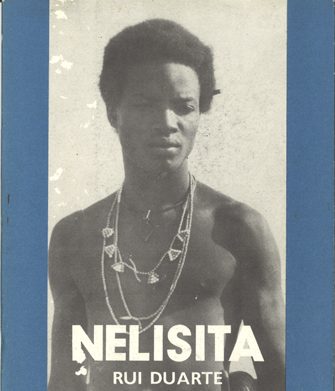 Inês Ponte published the article “An Angolan vernacular-language fiction film as para-ethnographic film: Nationalism and the evolving politics of film circulation and reception” in the journal History and Anthropology.
Inês Ponte published the article “An Angolan vernacular-language fiction film as para-ethnographic film: Nationalism and the evolving politics of film circulation and reception” in the journal History and Anthropology.
Through the case study of Nelisita, an Angolan vernacular-language feature fiction film, the article approaches african cinema and its changing relations with ethnographic film, film festivals and popular cinema, through a cinematic chain that includes from production to reception across contexts.
Abstract
This article examines Nelisita (Carvalho, 1982), an Olunyaneka-language feature fiction film made in the early years of Angolan cinema, and draws a historiography of its marginal production and ensuing scattered reception. Combining a historical approach to the film’s production and circulation, with an ethnographically-driven analysis of its recent screenings at a village sharing an Olunyaneka background, I discuss insights gained from its reception by an audience familiar with the cultural context portrayed on screen. Along with the history of the film’s production and circulation, the villagers’ engagement with the film sheds light on the evolving politics of cinema in Africa, particularly the complex relationships between popular and film festival audiences, film studies and visual anthropology. I examine shifting continuities and ruptures with regards to the film’s intricate social history, and analyse the production and reception of Nelisita as an experiment that highlights differing ways in which films can work as a contact zone.
Full citation: Ponte, Ines, (2021) “Angolan vernacular-language fiction film as para-ethnographic film: Nationalism and the evolving politics of film circulation and reception“, History and Anthropology, DOI: 10.1080/
To access the accepted manuscript, go here.
A story map of Nelisita‘s screening trajectory between 1982 and 2000s can be found here.

